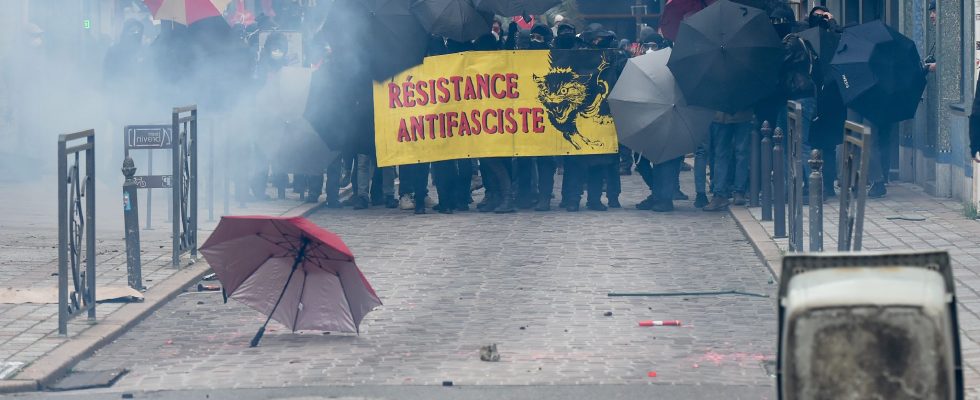“I don’t agree with what you say, but I will fight to the death for you to have the right to say it”: without doubt Voltaire’s famous quote is apocryphal, yet it sums it up well her thought. He, incarnation of the Enlightenment, who wanted to make tolerance the only remedy for discord, would find it difficult to find himself in today’s France. Where we are indignant only if we share the cause of the one who is targeted, not if the limits of decency are crossed. Public leaders can talk a lot about the “society of respect” – this was, who still remembers, the central axis of Jacques Chirac’s second presidential term, born of his victory against Jean-Marie Le Pen – politics no longer has the strength to impose it.
Saint-Brevin mayor Yannick Morez saw his home the target of an arson attack in late March, after his town was the scene of far-right protests over news of the arrival of a reception center for asylum seekers. The left and then all the leaders were moved – rightly -, while Marion Maréchal, certainly denouncing “this very problematic and reprehensible fact”, added on BFM: “There is an instrumentalization: the government and the left use this affair to make the French feel guilty, who are very largely opposed to immigration.” In private, she even adds that we are trying to “criminalize opposition to the settlement of migrants throughout the territory”. Confusion of minds is in full swing.
Where we talk becomes more important than what we say
A CNRS researcher, Florence Bergeaud-Blackler, threatened with death for having written a book on the Muslim Brotherhood, her conference at La Sorbonne canceled for security reasons: here again, the entire political class, starting with the left, rises to cry foul? Uh no. “The ministry and the CNRS tweeted in my defense, but no direct relationship, told the anthropologist Thursday on Europe 1. […] I did not receive a call either from the Minister of Higher Education and Research, or from the CNRS, or from my laboratory. The support is quite timid.” Interior Minister Gérald Darmanin finally announced that he would receive it.
When the singer Gims was attacked after an absurd interview – in which he explained, to sum up, that thanks to the pyramids the Egyptians, and therefore Africa, had invented electricity – Nicolas Sarkozy’s former secretary of state, Rama Yade, steps up: “It may not be the letter of what you said that is important, but the spirit. […] There may not have been electricity at the pyramids, but there was much better than that. It is in Africa that Man became bipedal. […] You did not deserve this lynching, you just wanted to correct an injustice, to repair Africans in their dignity as men and for that, I gladly salute you.” In doing so, she introduces doubt: if Gims was mocked, it would not would not be for the tenor of his remarks, but because of his origin Sad evolution of our public debate, continuation: the place where one speaks becomes more important than what one says.
This is how the time of selective indignation set in: the Insoumis made it a house specialty, even caricatures – we saw this, an example among many others, during the outbursts during the pension reform – but granting them a monopoly would be unfair. Soon, it will be too late to be alarmed, the observation will impose itself on all, and for the greatest misfortune of all: the public good will have been reduced to a trickle.
